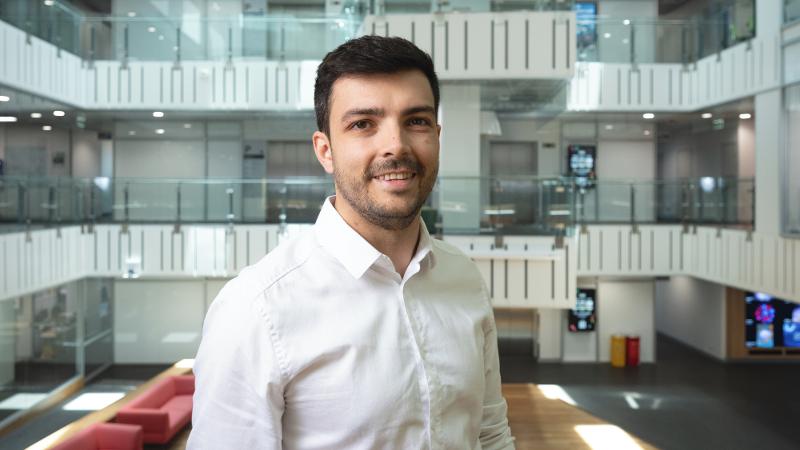
Dr Maxence Lavaill from QUT School of Mechanical, Medical and Process Engineering has been awarded an Advance Queensland Industry Research Fellowship of $160,000 with industry partner Stryker.
Dr Lavaill (above) is a postdoctoral fellow at the ARC Training Centre for Joint Biomechanics at QUT and his project will focus on developing a novel in-silico musculoskeletal simulation tool for shoulder joint surgery.
Dr Lavaill said that at least 2000 total shoulder replacements were conducted in Queensland alone last year.
“Shoulder implant surgery records the largest failure rate amongst all human joints – 15 per cent of patients have to return to theatre after failure of their shoulder implant, whereas hip joint replacement revisions are at five per cent,” Dr Lavaill said.
“This revision rate causes negative effects on patients’ health and high social and economic impacts.”
“Shoulder function is driven largely by joint forces exerted through muscle contractions.
“As current surgical planning accounts only for bone with no consideration of muscles, implementing and predicting muscle actions in the surgery planning process has the potential to improve these high shoulder implant failure rates.”
Dr Lavaill’s project aims to reduce revision rates by developing an automated, holistic approach to shoulder surgery planning which involves the patient’s specific muscle function as well as their bone structure.
“Central to this approach is the development of cutting-edge, musculoskeletal models validated using instrumented-implant data from patients who have undergone shoulder implant surgery,” he said.
“This will allow us to robustly test implant designs and evaluate their performance in restoring patient function.”
Stryker is a global medical technology company and a market leader in shoulder replacement.
“Thanks to the collaboration between Stryker and ARC Training Centre for Joint Biomechanics, the developed models will assist the company to produce the next generation of surgical planning software on a sound and evidence-based simulation-driven design for shoulders,” Mr Lavaill said.
“This will ultimately enhance the implant’s performance and longevity as well as improve patients’ quality of life.”
QUT Media contacts:
Niki widdowson, 07 3138 2999 or n.widdowson@qut.edu.au
After hours: 0407 585 901 or media@qut.edu.au


